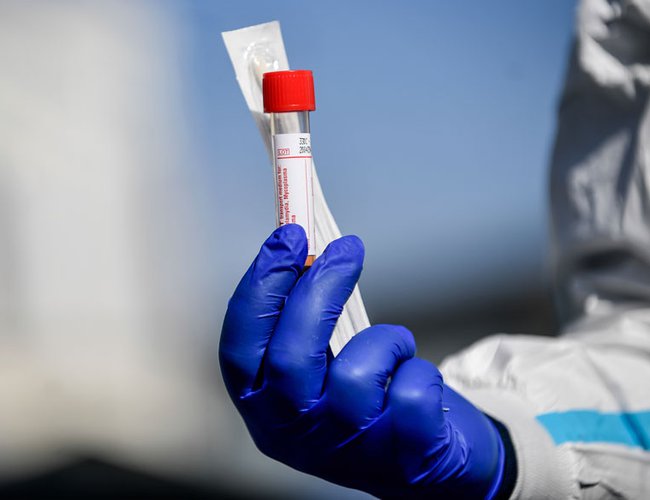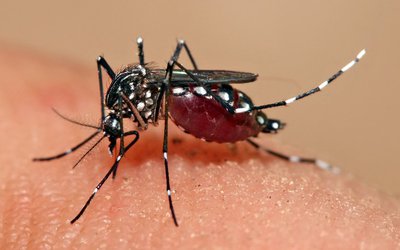
The Bangladesh government on Thursday approved a low-cost kit, developed by a private health research institute, to detect novel coronavirus cases in a mass scale, amidst reports of crisis of equipment in the country for such tests.
"We have issued a NOC (No Objection Certificate) to import raw materials to prepare the kits," a spokesman of Bangladesh's Drug Administration said.
The Gonoshasthaya Kendra, which developed the kit, had applied for clearance for import of raw materials.
"The government today gave approval to the coronavirus-detection kits and we have already started the process to import the raw materials required," the organisation's founder, Zafrullah Chowdhury, was quoted as saying by the state-run Bangladesh Sangbad Sangstha (BSS) news agency.
"We will start full-scale production in two weeks," he said, adding that each kit would cost Taka 300-Taka 350 ($3.54-$4.13).
According to Gonoshasthaya experts, the kit can examine samples to detect Covid-19 as fast as in 15 minutes.
Meanwhile, the authorities on Thursday tightened travel restrictions in popular tourist destinations.
Health Minister Zahid Maleque said the government would lock down the most vulnerable areas if the coronavirus outbreak worsened.
With four new cases reported on Thursday, the total number of COVID-19 cases rose to 17, including one death.
Experts opine there is a risk of spread of the disease due to lack of appropriate protection measures, particularly for doctors, staff and patients in hospitals.
Meanwhile, a huge venue for an annual Muslim congregation is being converted as a mass quarantine centre on the outskirts of the capital Dhaka.
The government has already closed all schools banned all social, religious, political and cultural rallies for an indefinite period.
The Supreme Court on Thursday barred police and jail authorities to produce prisoners and suspects in courts for legal proceedings in view of the growing coronavirus infection.
Bangladesh pharma regulator allows mass production of dot blot test kit but researchers say it has its limitations.
A group of scientists in Bangladesh has developed a $3 testing kit they claim can detect coronavirus in less than 15 minutes.
The South Asian nation's pharmaceutical regulator - the Directorate General of Drug Administration (DGDA) - gave its green light for the mass production of the kit last Thursday, saying it would ease the pressure on the pathology services struggling with coronavirus detection.
Bangladesh's largest vernacular daily Prothom Alo reported last week that only 1,732 testing kits are available in a country of nearly 180 million people.
Besides, according to a report of The Business Standard, the Bangladesh government has so far prepared only 29 intensive care unit (ICU) beds for COVID-19 patients in five Dhaka hospitals.
Most private hospitals that have ICU facilities are refusing to admit patients with even mild symptoms amid the COVID-19 scare.
Similar kit developed in China
The kit developed by Bangladesh's Gonoshasthaya-RNA Biotech Limited is similar to one developed in January by scientists in China as the coronavirus outbreak intensified in the Chinese province of Hubei.
A report by The Guardian said the Australian regulatory authority "urgently approved four Australian companies" to import the testing kit developed by the Chinese scientists after those companies sought to supply it into the Australian market.
Source: PTI
- India’s External Affairs Ministry’s Senior Officials Says Indo-Nepal relations are ever expanding
- Jul 05, 2025
- Bhutan Government Unveils Three Pronged Strategies To Tackle Skilled Migration Crisis
- Jul 05, 2025
- Weather Forecast: Generally Cloudy Across The Country With Heavy Rain At One Or Two Places Bagmati And Koshi Provinces
- Jul 05, 2025
- FNCCI President Dhakal Urges British Companies to Invest in Nepal
- Jul 04, 2025
- Nepal Is Expected To See 60,000 People Infected with Dengue This Year
- Jul 04, 2025














